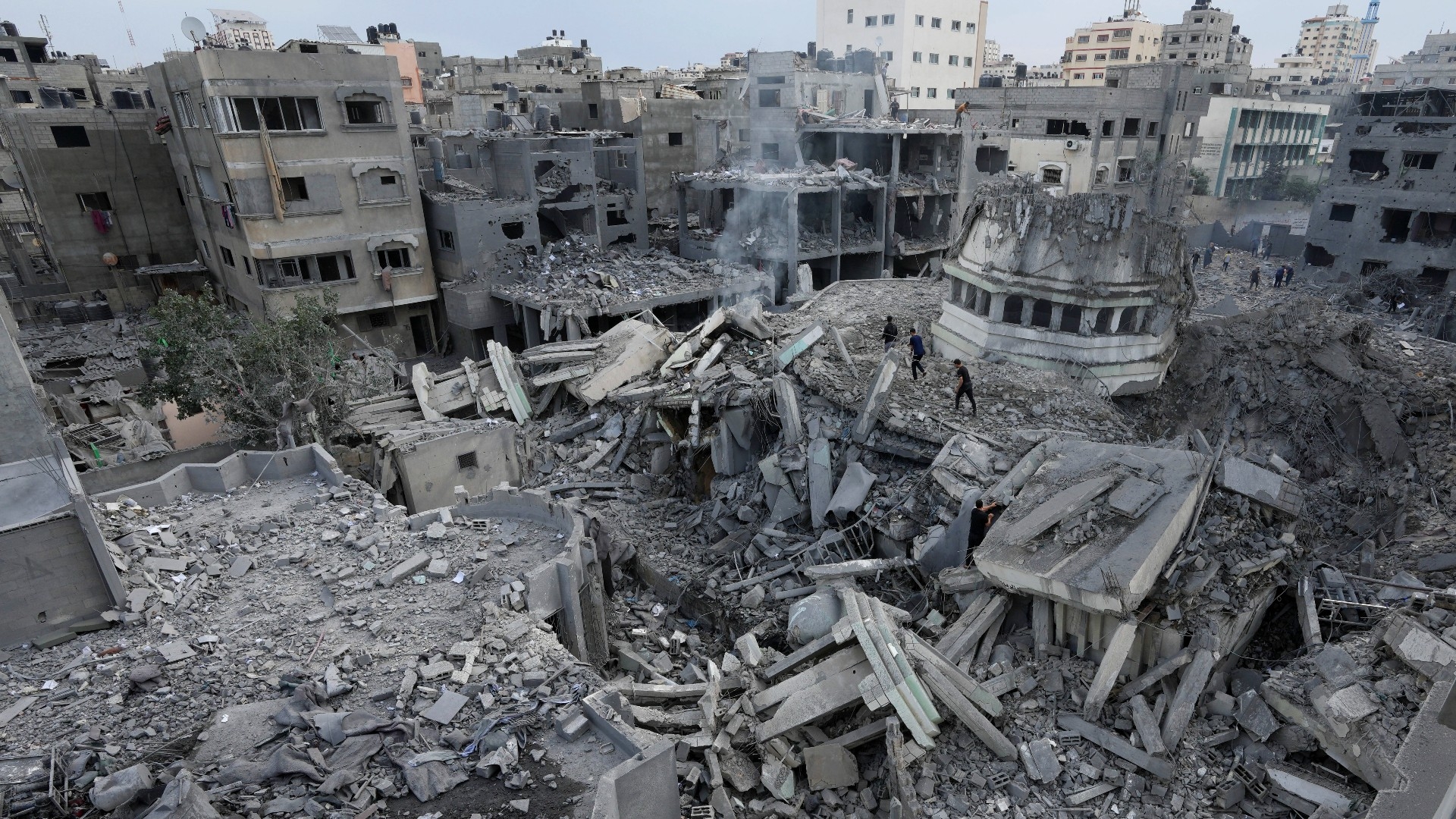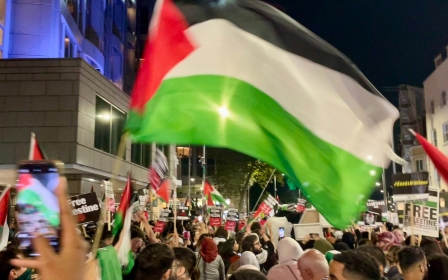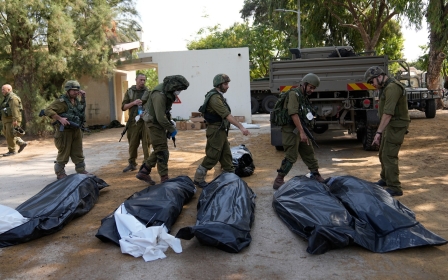Israel-Palestine war: Families thought they were safe at home, they were wrong

Entire Palestinian families have been wiped out in the besieged Gaza Strip after Israeli air strikes pummelled the "open air prison" for a fourth successive night.
According to Gaza's Ministry of Health, at least 13 entire families have been killed since Israel began pounding the coastal enclave with air strikes on Saturday, turning once busy streets and boulevards into fields of rubble.
Eyewitnesses and residents told Middle East Eye that in all of the incidents, the Israeli army had issued no prior notice before launching air raids on multi-storey residential buildings.
The eyewitnesses said that a primary reason why entire families had perished was due to many gathering in a single apartment, a common practice among Palestinians to ease stress during Israeli bombing campaigns.
Scenes of devastation have taken over Gaza since Saturday when Palestinian fighters mounted the deadliest attack on Israel in decades, killing over 1,000 people and taking dozens of hostage in a multi-pronged offensive.
Israel unleashed what Gaza residents have described as the most intense bombing campaign in recent memory, with at least 830 Palestinians killed so far.
Humanitarian groups have pleaded for the creation of corridors to get aid into Gaza and warned that hospitals overwhelmed with wounded people were running out of supplies.
Israel has stopped entry of food, fuel and medicines into the enclave, and with no bomb shelters, many have been left with no other option but to stay at home.
In a video circulated widely on social media, a member of the al-Zaanin family could be seen in tears, mourning the loss of her daughter and her entire family, following the targeting of their home in Beit Hanoun.
'Everywhere was bombed, wherever you looked, you would see [the devastation]'
- Amir al-Zaanin, Gaza resident
"We came and found out that they are all gone. All of them are martyred, all of them have died. They [the Israelis] have not given them [prior] notice. My daughter [...] over 20 people were at [the targeted] home," the grieving woman said.
Amir al-Zaanin, who lives in a nearby building, told MEE that many members of his family were still trapped under the rubble, hours after the attack.
"Everywhere was bombed, wherever you looked, you would see [the devastation]. Most of the Beit Hanoun area was bombed. There are still victims down there [under the debris] who no one can still reach," Amir said.
Although many of the residents MEE spoke to said they experienced similar scenes of destruction during Israel's 50-day attack on Gaza in July-August 2014, residents of Beit Hanoun said this time felt different.
"Last time, the majority [of the residents] had evacuated [before the attack]. This time no one had evacuated. There are places where massacres have been committed and where we still cannot reach,” Amir said.
A spokesman for Gaza's Civil Defence told MEE that Israeli forces had bombed roads leading to central hospitals, impeding the work of medical and civil defence crews.
'Without warning'
A few hours after the Beit Hanoun attack, residents of the Sheikh Radwan neighbourhood, north of Gaza City, witnessed a similar tragedy.
Six members of the Shaaban family, including four children, were killed when an Israel bombed their home.
"Without warning, my sister Enas Riyad Shaaban, her husband, who is my cousin, Nathir Shawqi Shaaban, and their children Omar, Ghada, Batoul, and Ahmed were martyred,” Fathi Shaaban, a resident of Gaza City, posted on Facebook.
On Monday, Israel's Defence Minister Yoav Gallant threatened further attacks on the impoverished population of two million people, and referred to the Palestinians as "human animals".
"I have ordered a complete siege on the Gaza Strip. There will be no electricity, no food, no fuel, everything is closed. We are fighting human animals and we act accordingly," he said.
A few hours after Gallant's announcement, the al-Rimal neighbourhood, a residential and commercial hub in the heart of Gaza City, was ravaged by air strikes.
Dozens of buildings, including businesses and shops, were razed.
Collapsed buildings, mangled infrastructure
Ahlam Bedi, a resident, managed to evacuate her apartment before the intense bombardment began.
"My children and I left for a relative's home, but this morning I went to inspect my apartment. I could hardly recognise my neighbourhood. It completely changed, nothing is in its place," Bedi told MEE.
"I also have almost completely lost my apartment, a large shell struck causing severe damage. I do not know if it's still habitable."
Since 2008, Israel has launched four invasions of Gaza, in 2008, 2012, 2014 and 2021, which resulted in the deaths of thouands of Palestinians, mostly civilians and many children.
The campaigns resulted in the destruction of homes and offices, damage to pipelines and sewage treatment infrastructure, impacting drinking water and spiking waterborne diseases.
Earlier this week, Israel struck the headquarters of the private Palestinian Telecommunications Company, affecting landline telephone, internet and mobile phone services, making it increasingly difficult for the population to maintain contact with the outside world.
Meanwhile, the World Health Organisation has said that supplies it pre-positioned for seven hospitals in Gaza have already run out amid the influx of wounded Palestinians.
Middle East Eye propose une couverture et une analyse indépendantes et incomparables du Moyen-Orient, de l’Afrique du Nord et d’autres régions du monde. Pour en savoir plus sur la reprise de ce contenu et les frais qui s’appliquent, veuillez remplir ce formulaire [en anglais]. Pour en savoir plus sur MEE, cliquez ici [en anglais].




